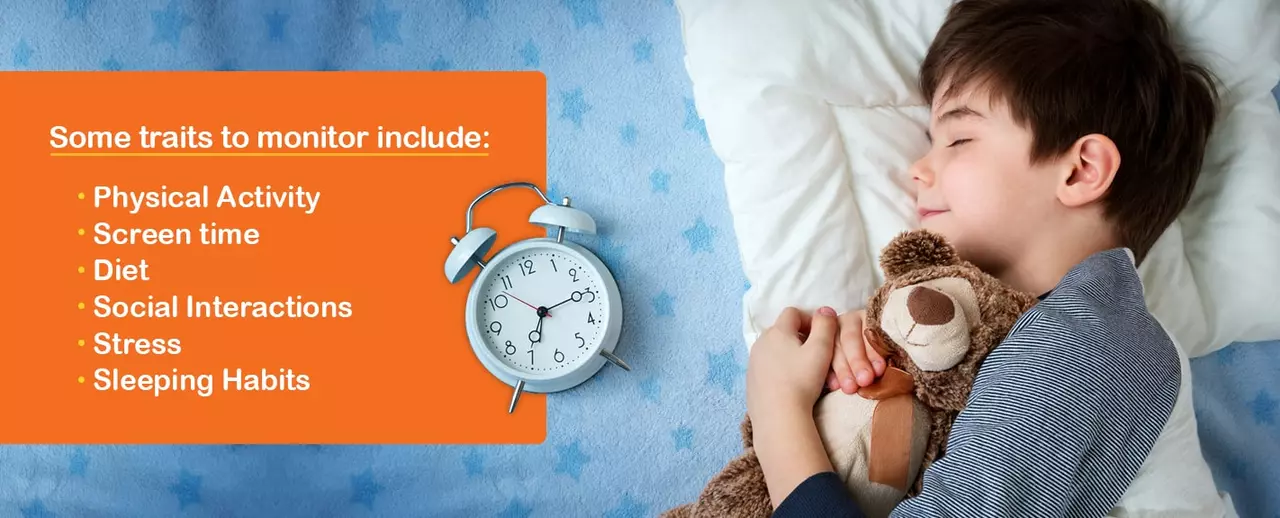How to Develop a Healthy Sleep Routine for Delayed Sleep Phase Syndrome

May, 5 2023
Understanding Delayed Sleep Phase Syndrome
Before we dive into developing a healthy sleep routine, it's important to understand what Delayed Sleep Phase Syndrome (DSPS) is. DSPS is a circadian rhythm sleep disorder that causes a person's sleep-wake cycle to be delayed by two or more hours. This means that they naturally feel more awake and alert later in the evening, and struggle to wake up early in the morning. It can have a significant impact on a person's daily life, as it can make it difficult to attend work, school, or social events that require waking up early.
People with DSPS may experience excessive daytime sleepiness, difficulty falling asleep at night, and trouble waking up in the morning. In order to develop a healthy sleep routine for DSPS, it's important to address these symptoms and work towards regulating the sleep-wake cycle. In this article, we will explore six strategies to help you manage your DSPS and improve your overall sleep quality.
Establishing a Consistent Sleep Schedule
One of the most crucial steps in developing a healthy sleep routine for DSPS is to establish a consistent sleep schedule. This means going to bed and waking up at the same time every day, even on weekends and holidays. Doing so can help regulate your body's internal clock and make it easier for you to fall asleep and wake up on time.
To start, determine the ideal time for you to go to bed and wake up, taking into consideration your natural sleep-wake cycle and daily commitments. Gradually adjust your bedtime and wake-up time by 15-30 minutes per day until you reach your desired schedule. Be patient and give your body time to adjust to the new routine.
Creating a Relaxing Bedtime Routine
A relaxing bedtime routine can help signal to your body that it's time to wind down and prepare for sleep. Incorporate activities that help you relax and de-stress, such as reading, taking a warm bath, or practicing deep breathing exercises. Avoid stimulating activities like watching TV, using your smartphone or computer, and engaging in intense exercise close to bedtime, as these can make it more difficult for you to fall asleep.
Additionally, make your sleep environment as comfortable as possible. Invest in a high-quality mattress and pillows, and keep your bedroom at a cool temperature. Eliminate any sources of noise or bright light that may disrupt your sleep.
Managing Light Exposure
Exposure to natural light during the day and darkness at night can help regulate your body's circadian rhythm. Try to spend time outside during daylight hours, particularly in the morning, to help reset your internal clock. If you're unable to get outside, consider investing in a light box that mimics natural sunlight.
In the evening, dim the lights in your home and avoid exposure to the blue light emitted by electronic devices, as this can interfere with your body's production of melatonin, a hormone that helps regulate sleep. You may want to use blue light-blocking glasses or install apps on your devices that reduce blue light exposure in the evening.
Considering Melatonin Supplements
For some individuals with DSPS, melatonin supplements may help improve sleep quality and regulate the sleep-wake cycle. Melatonin is a hormone naturally produced by the body in response to darkness, and it plays a key role in regulating sleep. Talk to your healthcare provider before starting any new supplement, as melatonin may interact with certain medications or have side effects.
If your healthcare provider approves the use of melatonin, start with the lowest recommended dose and gradually increase it as needed. Take the supplement 1-2 hours before your desired bedtime to help signal to your body that it's time to sleep.
Practicing Good Sleep Hygiene
Good sleep hygiene involves creating habits and behaviors that promote healthy sleep. In addition to establishing a consistent sleep schedule and bedtime routine, other sleep hygiene practices include:
- Avoiding caffeine and nicotine in the afternoon and evening
- Limiting alcohol consumption, as it can disrupt sleep
- Creating a quiet, dark, and comfortable sleep environment
- Not spending too much time in bed awake, as this can create a negative association between your bed and sleep
- Getting regular exercise, but not too close to bedtime
By practicing good sleep hygiene, you can help improve your overall sleep quality and better manage your DSPS.
Seeking Professional Help
If you've tried the strategies outlined above and are still struggling with DSPS, it's important to seek professional help. A sleep specialist can assess your sleep patterns, provide personalized recommendations, and determine if additional treatments, such as light therapy or chronotherapy, may be beneficial for you.
Living with DSPS can be challenging, but by implementing these strategies and seeking professional guidance, you can develop a healthy sleep routine that works for you and improve your overall sleep quality.
